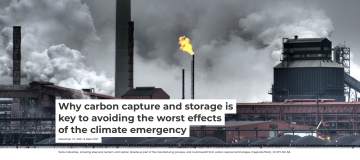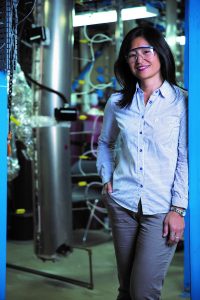Why carbon capture and storage is key to avoiding the worst effects of the climate emergency?
With the ongoing climate emergency and nations’ commitments to meet net-zero goals by 2050, there’s a heightened need to significantly reduce greenhouse gas emissions through whatever means possible. Carbon capture and storage (CCS) or carbon capture, utilization and sequestration (CCUS) are included in the mitigation pathways set out by the Intergovernmental Panel on Climate Change…<READ MORE>

Some industries, including steel and cement, emit carbon dioxide as part of the manufacturing process, and could benefit from carbon capture technologies. (haglundc/flickr), CC BY-NC-SA
